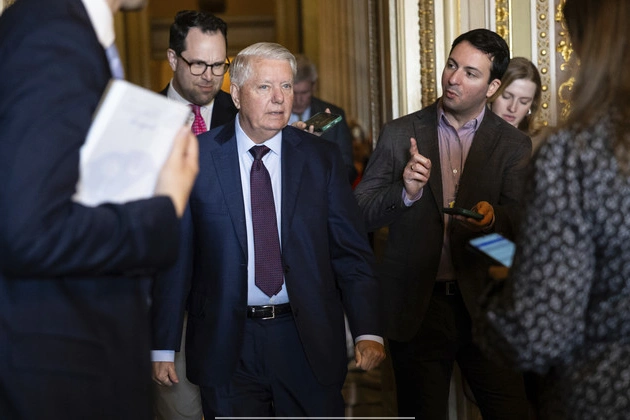
Graham’s Ambitious Sanctions Plan
Senator Lindsey Graham has put forth a bold plan to impose ‘bone-crushing’ sanctions on Russia, aiming to cripple its economy. However, the proposed 500 percent tariffs on countries buying Russian energy could have unintended consequences.
While the goal is to isolate Russia economically, the reality is more complex. Countries like India and China, major consumers of Russian energy, could face significant disruptions. Even the United States, reliant on Russian enriched uranium, may feel the impact.
Challenges and Criticisms
Experts question the feasibility of such drastic measures. Tariffs of this magnitude could trigger price hikes, supply chain disruptions, and economic downturns. The bill’s broad scope raises concerns about its effectiveness and potential repercussions.
Senator Rand Paul criticizes the bill as overly harsh, warning of a global embargo affecting 36 countries. The complexity of international energy markets and trade dynamics adds layers of uncertainty to the proposed sanctions.
Global Diplomatic Implications
Amidst ongoing tensions between Russia and Ukraine, the sanctions bill seeks to pressure Russia economically. The bipartisan support for tougher actions reflects a growing consensus on the need for a strong stance against Russian aggression.
European leaders, including Ursula Von der Leyen, have expressed support for coordinated sanctions to deter Kremlin’s actions. The proposal signals a united front against Russian destabilization efforts.
Path Forward and White House Response
Congress is set to deliberate on the bill, with Senate Majority Leader John Thune indicating potential approval. However, securing White House support remains a crucial step before implementation.
President Trump’s stance on the bill is pivotal. While he acknowledges sanctions as a foreign policy tool, his final decision could shape the bill’s trajectory. Recent signals suggest a cautious approach, balancing diplomatic pressures with domestic interests.
The evolving nature of US-Russia relations underscores the complexities of enforcing stringent sanctions. As stakeholders navigate the geopolitical landscape, the impact of Graham’s proposed measures remains uncertain.











